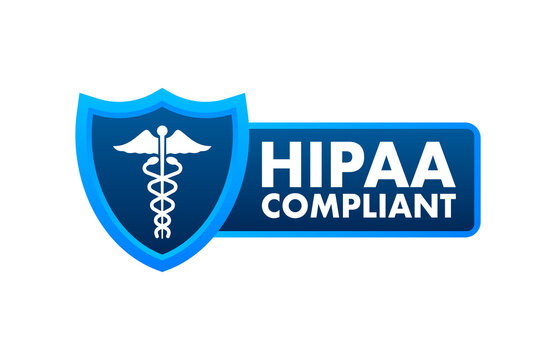You’re in pain. Like, serious pain that’s making it hard to even think straight. Maybe it’s a killer migraine that feels like someone’s tap dancing on your skull, or a back injury that makes walking feel like torture. Your regular doctor can’t see you for days, and you’re desperate for relief.
So you’re wondering: Will urgent care actually help me with pain medication? Most people have been exactly where you are right now-caught between suffering and finding a solution. The good news? I’m going to break down everything you need to know about getting pain meds at urgent care, no medical degree required.
Table of Contents
ToggleWhat Kind of Pain Can Urgent Care Actually Treat?
Pain is not the same for everyone, and urgent care centers many ways understand this better than most medical facilities. People seek out urgent care for acute injuries and sudden pain flare-ups that simply cannot wait for a traditional doctor’s appointment. Here’s a breakdown of the types of pain that urgent care treats:
Acute Injuries
- Sharp or sudden pain
- Pain in the back
- Headaches
- Pain in the abdomen
- Joint pain
- Muscle pain
- Pain related to conditions like fibromyalgia, complex regional pain syndrome (CRPS), and other chronic pain conditions
Right in their wheelhouse are muscle strains, minor sports injuries, and short-term pain problems. Think of urgent care as the middle ground between your primary care physician and the emergency room.
Musculoskeletal conditions are why patients come in most frequently, and urgent care clinics are equipped to handle those basic-but-serious conundrums that aren’t life-threatening but need attention now. If strain isn’t the leading cause, it certainly ranks high among the reasons urgent care is there for you.
Understanding Urgent Care’s Medication Approach
Most people do not understand this: pain relief facilities are not urgent care centers. In lot of cases, they follow protocols more strictly than physicians do when it comes to balancing patient care and potential prescription drug abuse. So if you think urgent care centers are going to provide you with the relief you need to get through the day, you might just be making a pit stop on the way to the pain clinic.
At urgent care centers, medical professionals are trained to look into and assess each patient’s pain situation. They pay attention to the medical particulars, figure out the pain’s real cause, and arrive at the most suitable treatment approach. It’s not about choosing a quick fix or even a medium-duration bandage; it’s about choosing the long-term treatment path that does the most good.
When Urgent Care WILL Prescribe Pain Meds?
Thus, when will urgent care really prescribe pain meds? It’s specific types of situations where they’ll do it. One is (obviously) recent injuries that are clearly medically evident. Some you’ve suffered a sprain, a minor fracture, or some other acute condition and need relief right now? Go to urgent care, and they might actually help with that.
The key is to have a documented medical reason for the pain medication. They are looking for concrete evidence that supports the need for prescription pain relief. This might be inclusive of X-rays, physical examinations, or other sorts of diagnostic tests that confirm the source of your pain.
You May Like To Read: Can Urgent Care Treat Ear Infections In Children?
When Urgent Care WON’T Prescribe Pain Medications?
Let us be clear about the constraints. Urgent care has very tight rules concerning prescriptions for pain medications. They will not prescribe medications intended for chronic pain or long-term pain management. Instead, they very often will recommend you use some other treatment strategy or refer you to a specialist who can provide the kind of care that permits pain to be managed safely and effectively.
Handling a multifaceted pain condition is more than we can manage on an urgent basis. Urgent care is for immediate, short-term fixes. They frequently ask us to follow up with primary care or pain management specialists for ongoing treatments.
These are the folks in our health care system who have the bandwidth and time to treat complex, persistent pain with more than just Band-Aid measures. They’re the ones who can indeed help us manage the condition over the long haul.
Tips for Getting the Most Help at Urgent Care
Urgent care visits can be brief. To get the most out of the time you have with the provider, you must be an excellent communicator. That starts with being honest, not just in a general way about what you are experiencing, but in a very specific, detailed account of your symptoms. Urgent care providers are not mind readers, and you must clear a path to understanding that allows them to see precisely why you are in their care.
Bring any pertinent medical documents or recent test results. They can help the doctors make a more specific diagnosis and decide on the most suitable treatment plan.
What to Do If Urgent Care Can’t Help?
If your pain persists and immediate care can’t condense it down to a manageable state, that doesn’t mean you should give up on the value of urgent care. They can still help you in three ways: by offering possible alt suggestions; setting you up with someone who can give more condensed, directed care; or, if you’re fortunate, doing both.
Following this letter, some possible next steps might include:
- Scheduling an appointment with your primary care physician
- Seeing a pain management specialist
- Exploring treatment options like physical therapy or specialized medical consultations
Final Words
Urgent care can be a lifeline when you’re in pain, but it’s not a guaranteed pain medication dispensary. The key is understanding their approach, being honest about your symptoms, and working collaboratively with medical professionals.



